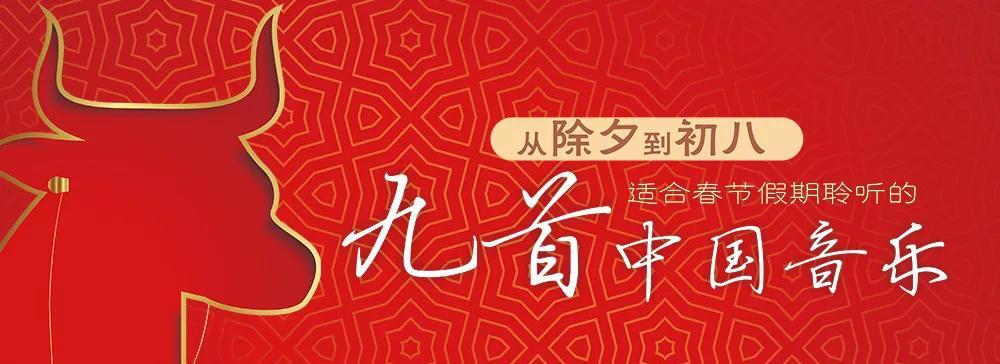
Readers, when you receive the February magazine, we are about to usher in the Spring Festival of the Year of the Ox. The Lunar New Year is the first of the year and the most important festival in the traditional Chinese sense. During the Spring Festival, various activities to celebrate the New Year are held throughout the country, with strong regional characteristics and cultural connotations of different ethnic groups. These activities are mainly based on the removal of the old cloth and the new cloth, the exorcism of evil spirits, the worship of gods and ancestors, and the blessing of the New Year, which are rich and colorful in form and embody the essence of traditional Chinese culture. For the majority of music lovers, the Spring Festival also means that you can finally have a large period of leisure time and enjoy the music. From the Chinese New Year's Eve night of the Chinese New Year's Eve to the 9 days of the Spring Festival on the eighth day of the Chinese New Year, we recommend different Chinese national music to everyone according to the corresponding customs and folk customs every day, and wish everyone a happy and peaceful Spring Festival full of musical passion.
Chinese New Year's Eve: "Lost Time"
Album: Chen Qigang "Butterfly Loves Flowers"
Number: EMI/Xingwen SWS-0011
The past 2020 has been an extraordinary year for the people of China and even the world. This year, the new crown epidemic was raging, the global economy stagnated; and at the same time that China got rid of the shadow of the virus and fully resumed production and life, the countries of the world were choked by the evil hand of the epidemic; the world's attention to the US election was ups and downs and confusing, and the American society that was plagued by the "can't breathe" black incident was secretly surging with frenzy. Finally, it is time to come to the New Year, when the old is about to turn to the new, let us listen to the composer Chen Qigang's "Lost Time" for the cello and orchestra, feel the many things that happened in the past year, pay tribute to the retrogrades who have dedicated their lives to the country and the people, and greet the year full of hope and happiness with a new look.
Lost Time (for cello and orchestra) Chen Qigang - Butterfly Love Flower
Chen Qigang is a Chinese composer active in the mainstream of the Western world, and he has become one of the few figures in the group of new Chinese musicians who have a world impact with a strong and distinct atmosphere of the times, a delicate and lyrical personal temperament, sensitive and euphemistic inner activities, and a rigorous and exquisite musical language. As one of the most influential composers in China today, Chen Qigang's music has been performed worldwide by many of the world's top orchestras. Created between 1995 and 1996, Cello and Orchestral Played by The Lost Time is one of the most emotional of all his works, premiered in Paris in April 1998 by Yo-Yo Ma and the French National Symphony Orchestra, and the premiere recording and his national instrumental concerto "Butterfly Love Flower" are included in the album published by EMI (NO. : EMI/Star SWS-0011).
Unlike some "modern music", which over-pursues the novelty and complexity of technique, far from tradition and people's aesthetic habits. "Lost Time" adopts a large number of traditional Chinese five-tone scales, and chooses the overtone melody of the piano song "Plum Blossom Three Alleys", which is very familiar to Chinese listeners, and as the only main motivation throughout the whole piece; from the change of the theme material to the emergence of the original theme and the emergence of the original theme and the two re-changes and reappearances, using the "fade out, fade in" filtering technique, the different tonal sounds are staggered and overlapped, even if the original discordant sound becomes soft, but also strengthens the tension, color and development of the musical line. The climax of the whole song is magnificent, and it sounds very Chinese and very modern. The overall tone of the single-movement concerto "Lost Time" is very soft and soothing, including many heavy and sad bridges but no negative emotions, the harmonious coexistence of man and nature, the dialectical reflection of gain and loss, these more profound themes are faintly revealed in the structure of the music. Its musical progress seems to echo the course of the Chinese people, under the leadership of the party and the government, overcoming many difficulties and breaking through various internal and external blockades, and finally achieving major victories in the fight against the epidemic and economic development.